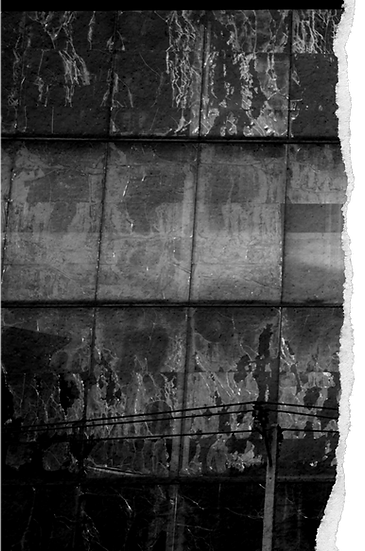


A defining trope in filming the age of inequality has been the master/servant narrative that ends in either solidarity or violent conflict.


Mexico
Korea
Russia
Iran
US
Japan

A defining trope in filming the age of inequality has been the master/servant narrative that ends in either solidarity or violent conflict.
Hong Kong
Taiwan
Iran
US
Russia
Korea
Mexico
Japan




MANK disguises its political commentary on the present by packaging itself as a prestige biopic about the genesis of Citizen Kane, when in fact the film seeks to criticize the complicity of present-day liberal Hollywood in marginalizing progressive politicians like Bernie Sanders by focusing on the studios’ smear campaign utilizing “fake news” against Upton Sinclair in 1934’s California gubernatorial election. How the rich and the poor fared during the Depression also forms the film’s take on America today.
ROMA and PARASITE respectively represent the contrasting cinematic paradigms – one leading to an idealized, normative outcome and the other a grim worst-case scenario. As dual narratives that unfold the stories of rich and poor families both in parallel and at points of intersection, the films rely on cross-cutting and mise-en-scène (foreground/background) to divide time and space between masters and servants, but whose story is it, and how are boundaries defined? What role does genre play in these films?


ROMA and PARASITE respectively represent the contrasting cinematic paradigms – one leading to an idealized, normative outcome and the other a grim worst-case scenario. As dual narratives that unfold the stories of rich and poor families both in parallel and at points of intersection, the films rely on cross-cutting and mise-en-scène (foreground / background) to divide time and space between masters and servants, but whose story is it, and how are boundaries defined? What role does genre play in these films?

ROMA and PARASITE respectively represent the contrasting cinematic paradigms – one leading to an idealized, normative outcome and the other a grim worst-case scenario. As dual narratives that unfold the stories of rich and poor families both in parallel and at points of intersection, the films rely on cross-cutting and mise-en-scène (foreground/background) to divide time and space between masters and servants, but whose story is it, and how are boundaries defined? What role does genre play in these films?



The nature of globalized capitalism is such that master/servant narratives in the age of inequality unfold less differently than one might expect in cities like Moscow or Tehran compared to Seoul. ELENA’s upstairs/downstairs story plays out in contemporary Russia, and characteristically of Zvyagintsev’s realist dramas, conflicts of interest lead inexorably towards a tragic outcome. Social realist drama based on class conflict also forms the basis of Farhadi’s films (A SEPARATION), whether set in Iran or Europe.

The nature of globalized capitalism is such that master/servant narratives in the age of inequality unfold less differently than one might expect in cities like Moscow or Tehran compared to Seoul. ELENA’s upstairs/downstairs story plays out in contemporary Russia, and characteristically of Zvyagintsev’s realist dramas, conflicts of interest lead inexorably towards a tragic outcome. Social realist drama based on class conflict also forms the basis of Farhadi’s films (A SEPARATION), whether set in Iran or Europe.




The nature of globalized capitalism is such that master/servant narratives in the age of inequality unfold less differently than one might expect in cities like Moscow or Tehran compared to Seoul. ELENA’s upstairs/downstairs story plays out in contemporary Russia, and characteristically of Zvyagintsev’s realist dramas, conflicts of interest lead inexorably towards a tragic outcome. Social realist drama based on class conflict also forms the basis of Farhadi’s films (A SEPARATION), whether set in Iran or Europe.




The nature of globalized capitalism is such that master/servant narratives in the age of inequality unfold less differently than one might expect in cities like Moscow or Tehran compared to Seoul. ELENA’s upstairs/downstairs story plays out in contemporary Russia, and characteristically of Zvyagintsev’s realist dramas, conflicts of interest lead inexorably towards a tragic outcome. Social realist drama based on class conflict also forms the basis of Farhadi’s films (A SEPARATION), whether set in Iran or Europe.


It is telling of America’s politicized cultural atmosphere in the age of inequality that GREEN BOOK – a master/servant narrative in which class hierarchy is complicated by issues of race and sexual orientation – was greeted with a polarized and even hostile reception upon its release. A fable-like presentation of a true story that relies on buddy movie conventions to resolve its contradictions, the film was accused by detractors of being an inauthentic white saviour narrative even as it won the Best Picture Oscar.



It is telling of America’s politicized cultural atmosphere in the age of inequality that GREEN BOOK – a master/servant narrative in which class hierarchy is complicated by issues of race and sexual orientation – was greeted with a polarized and even hostile reception upon its release. A fable-like presentation of a true story that relies on buddy movie conventions to resolve its contradictions, the film was accused by detractors of being an inauthentic white saviour narrative even as it won the Best Picture Oscar.

DRIVE MY CAR may be based on a Murakami short story, but as with Lee Chang-dong’s Murakami adaptation BURNING, the literary material is significantly reconfigured with a far stronger real-world social context to speak urgently to the age of inequality. Metaphysical questions concerning inequality are raised through the intertext of Chekhov’s Uncle Vanya, while the film’s self-reflexive meditation on the role of art in our lives ultimately distinguishes it from the superficially similar GREEN BOOK.

DRIVE MY CAR may be based on a Murakami short story, but as with Lee Chang-dong’s Murakami adaptation BURNING, the literary material is significantly reconfigured with a far stronger real-world social context to speak urgently to the age of inequality. Metaphysical questions concerning inequality are raised through the intertext of Chekhov’s Uncle Vanya, while the film’s self-reflexive meditation on the role of art in our lives ultimately distinguishes it from the superficially similar GREEN BOOK.






DAYS is an unexpected treatment of the master/servant narrative that may well prove the richest in its ambiguities, as what is left unsaid provides much space to contemplate its silent depiction of the parallel lives of a sex worker and his client beyond their time spent together that is at once an economic transaction and a form of shared intimacy that provides respite from loneliness. A comparable sense of ambiguity marks Ann Hui’s A SIMPLE LIFE: what constitutes a humane relationship between master and servant?




DAYS is an unexpected treatment of the master/servant narrative that may well prove the richest in its ambiguities, as what is left unsaid provides much space to contemplate its silent depiction of the parallel lives of a sex worker and his client beyond their time spent together that is at once an economic transaction and a form of shared intimacy that provides respite from loneliness. A comparable sense of ambiguity marks Ann Hui’s A SIMPLE LIFE: what constitutes a humane relationship between master and servant?


ROMA and PARASITE respectively represent the contrasting cinematic paradigms – one leading to an idealized, normative outcome and the other a grim worst-case scenario. As dual narratives that unfold the stories of rich and poor families both in parallel and at points of intersection, the films rely on cross-cutting and mise-en-scène (foreground/background) to divide time and space between masters and servants, but whose story is it, and how are boundaries defined? What role does genre play in these films?

ROMA and PARASITE respectively represent the contrasting cinematic paradigms – one leading to an idealized, normative outcome and the other a grim worst-case scenario. As dual narratives that unfold the stories of rich and poor families both in parallel and at points of intersection, the films rely on cross-cutting and mise-en-scène (foreground / background) to divide time and space between masters and servants, but whose story is it, and how are boundaries defined? What role does genre play in these films?



DAYS is an unexpected treatment of the master/servant narrative that may well prove the richest in its ambiguities, as what is left unsaid provides much space to contemplate its silent depiction of the parallel lives of a sex worker and his client beyond their time spent together that is at once an economic transaction and a form of shared intimacy that provides respite from loneliness. A comparable sense of ambiguity marks Ann Hui’s A SIMPLE LIFE: what constitutes a humane relationship between master and servant?




DAYS is an unexpected treatment of the master/servant narrative that may well prove the richest in its ambiguities, as what is left unsaid provides much space to contemplate its silent depiction of the parallel lives of a sex worker and his client beyond their time spent together that is at once an economic transaction and a form of shared intimacy that provides respite from loneliness. A comparable sense of ambiguity marks Ann Hui’s A SIMPLE LIFE: what constitutes a humane relationship between master and servant?


